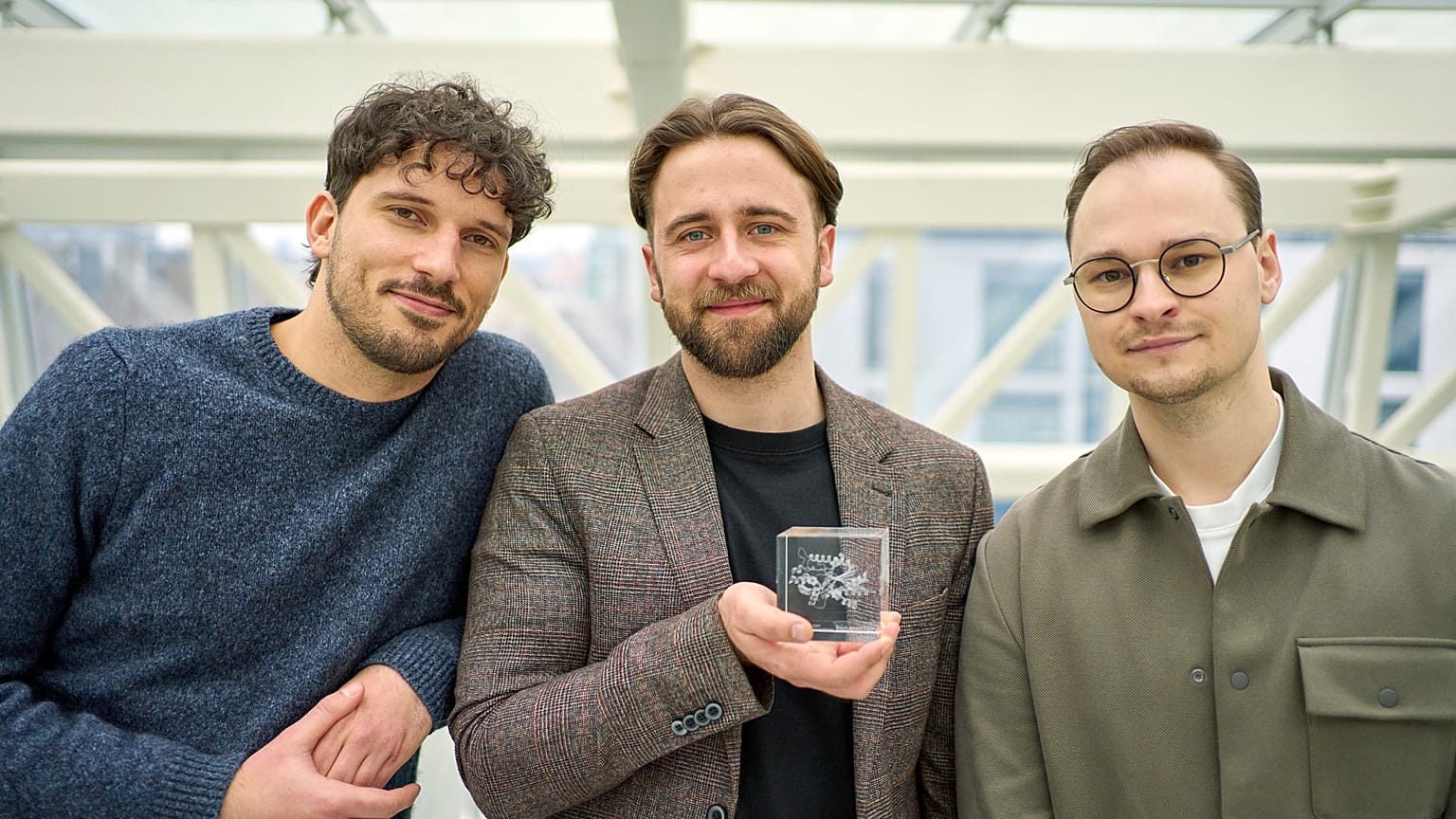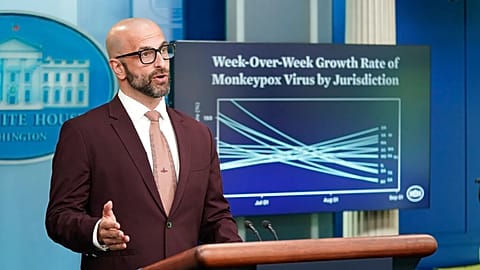Laurynas Karpus, Vykintas Jauniškis and Irmantas Rokaitis have developed an AI-based enzyme design tool that could revolutionise health, sustainability, and manufacturing.
Enzymes are the hidden machinery behind many of today’s medical, industrial, and environmental advances – but conventional enzyme design methods have reached their limits. That’s where Laurynas Karpus (30), Vykintas Jauniškis (29), and Irmantas Rokaitis (28) come in.
These Lithuanian innovators have pioneered an AI-powered platform that generates custom enzymes from scratch, free from the limitations of nature’s templates. Thanks to their groundbreaking invention, they were named among the top ten Tomorrow Shapers in the European Patent Office’s 2025 Young Inventors Prize.
Breaking the mold in enzyme design
Their tool, developed through their company Biomatter, is known as the Intelligent Architecture™ platform. It doesn’t just tweak what nature already offers – it creates entirely new enzymes designed for specific industrial and medical uses.
“By creating the technology for new enzyme design that is only limited by our imagination, we are unlocking a key bottleneck in solving health and sustainability problems in the 21st century,” the trio said in a joint statement.
The platform combines machine learning, physics-based modeling, and experimental testing to continuously improve its enzyme outputs. The result? Scalable, efficient, and highly tailored biological tools that can accelerate everything from drug development to green chemistry.
From student collaboration to industry disruption
The journey began in 2017 at the Institute of Biotechnology at Vilnius University, where the trio collaborated on early AI enzyme-generation models. One of their first breakthroughs was ProteinGAN, a machine-learning model that demonstrated the feasibility of generating novel, functional enzymes. That success led them to co-found Biomatter in 2018 alongside scientists Rolandas Meškys and Donatas Repečka.
Biomatter has since partnered with biotech leaders like Kirin, to produce Human Milk Oligosaccharides (HMOs) – essential nutrients for infant health – and with ArcticZymes Technologies, to develop better enzymes for gene therapy, vaccine manufacturing, and bioprocessing.
“Our goal is to make enzyme engineering faster, cheaper, and to solve a problem that couldn’t be solved before,” says Rokaitis, emphasising Biomatter’s ability to meet specific industry needs beyond traditional engineering in the field. “Each enzyme we build has the potential to revolutionise that specific part of the industry and make it much more sustainable,” Karpus adds.
Custom enzymes as catalysts for sustainability
Their work comes at a pivotal time. With the enzyme market expected to grow from €10 billion in 2025 to €15 billion by 2034, the need for next-generation enzyme solutions is critical. What’s more, the Lithuanian team’s innovation supports United Nations Sustainable Development Goals – specifically SDG 3 (Good Health and Well-being) and SDG 9 (Industry, Innovation, and Infrastructure).
Biomatter’s AI-engineered enzymes aren’t just a scientific advance – they’re a promise of a more adaptive and sustainable future.
For Karpus, this future – and our approach to it – is as much about mindset as it is about science: “My advice to younger generations would be to not be afraid of building, because the future is not set in stone: the future is what you make of it.”



















